How to Find the Fair Market Value of a Home: A Complete Guide

Whether you are planning to sell or purchase a house, you will be making a major financial decision. So, it is important to know the fair market value (FMV) of the property before setting out on the selling or buying process. The fact is that a house has many different values. Those values are always changing and are affected by various market forces. So, how to find fair market value of home? Find out the answer in the following guide.

Fair Market Value
Fair market value refers to the price that a property will sell for on the open market where both the seller and buyer are willing and know all the facts related to the property. A sale using fair market value of home is referred to as an “arm’s length transaction” by the IRS.
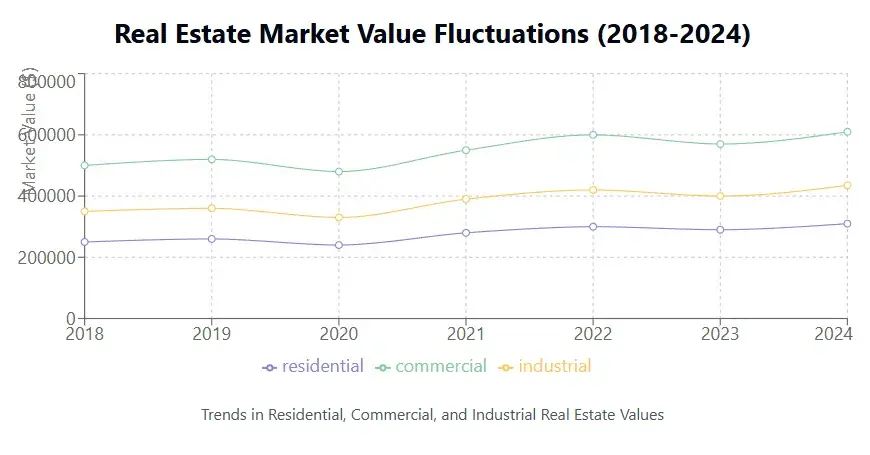
What Is the Market Value of a Home?
The fair home market value is an estimate of the price that the house can sell for on the open market. It should be clear that the FMV is not an exact amount, but an approximate price. It is not necessary that the FMV be the same as the price that a homeowner seeks to sell their house for or the price a buyer is ready to pay to purchase a house.
Fair Market Value vs. Appraised Value: What’s the Difference?
Once you are in the market to sell your house, you will find that the fair market value of my home is different from its appraised value.
The differences between the two values can be realized from the following points:
Fair Market Value
The market value of home is generally consumer-based. It is typically an agreed-upon price that the buyer is ready to pay and then the seller accepts. It can be determined based on:
The property’s features and condition
Checking the prices similar homes in the neighborhood have sold for in recent times
Checking the latest real estate market trends
FMVs are not official appraisals. They must be seen as a starting point to determine the actual worth of a house.
Appraised Value
Home appraisal is a targeted, third-party evaluation of a property's market value. An appraisal is usually required by a mortgage lender to know about a house’s market value. It helps lenders ensure that the borrower does not borrow more money than the house’s worth.
The independent, third-party assessors are known as appraisers. Some of the key characteristics of appraisers are as follows:
Licensed appraisers work in a highly regulated industry
They are required to have fixed hours of state-regulated education and fieldwork
They must also undergo regular training to stay licensed

Why Knowing the Fair Market Value of Your Home Is Important?
Fair market value of home has an important role to play in different aspects of homeownership.
It helps determine property taxes because municipal assessments are generally based on the FMV.
Even appraisers require FMV to guide their assessment.
FMV is required in the insurance industry when determining claim payouts related to accidents, fire, flood, or other disasters.
When it comes to property donations for charity purposes, tax authorities can use FMV for tax purposes.
When shopping for a house, you will want to begin with the knowledge of the current market value of home. When you understand a house’s FMV, it becomes easier to determine whether a listed price is high or low.
As a seller, the FMV of your home can help you know how much equity you hold. Equity is generally calculated by subtracting the current mortgage balance from the current FMV. Listing agents also rely on FMV to help them price a house on the market.
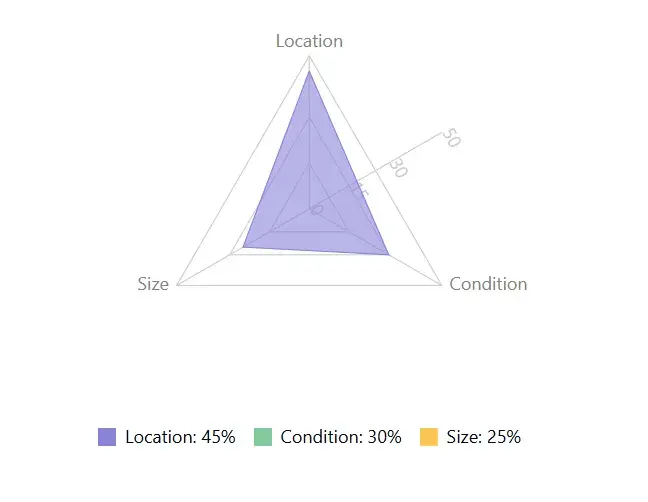
Factors That Influence Home Market Value
When finding an answer to the question of what is the market value of my home, it is important to consider all types of factors, both within and outside your control. The factors that affect FMV are as follows:
Location and Neighborhood Comparisons
Location is a factor affecting the value of your home that you have no control over. To potential buyers, location is a crucial factor. Everyone is looking for a location that meets their needs. You may have the perfect house for a potential buyer, but if it is located in a rural area and the buyer prefers access to the amenities of city life, it can affect their offer or even their decision to purchase the house.
Neighborhood is another related factor that affects the market value of home. According to a National Association of Realtors (NAR) report, people mostly want to purchase a home because they want to live closer to their jobs or want easier access to schools and public transportation. Some of the factors that can make a neighborhood more appealing and contribute to increased home value are as follows:
Easy access to shopping, grocery stores, and entertainment
Availability of parking
Easy access to major highways
Low crime rate
Potential homebuyers are often willing to pay higher prices for similar homes that are just a few miles away.

Property Size, Features, and Condition
When trying to find the fair market value of my home, property size is going to play a big role. Larger houses always have a bigger price tag because of their larger size. More square footage means that there is a greater potential for customization and renovation. As more homeowners tend to work from home nowadays, having more space for creating a home office can be a big draw.
Features and upgrades, both minor and major can also add to a property’s value. Some examples of such features include:
Pools
Finished basements
More bedrooms and bathrooms
Modern kitchens
Outdoor entertainment areas
Houses that have not been updated tend to have lower market value.
Age and condition can also affect the current market value of home. If a house needs work, its value can come down significantly. When someone buys a fixer-upper, they will be looking forward to all kinds of costs. Issues with the following features can have a significant impact on a house’s value:
An outdated kitchen
Old floor plans
Roofing or plumbing
Replacing an HVAC system or roof can set a new homeowner back by thousands. Besides, it costs more to insure older homes.
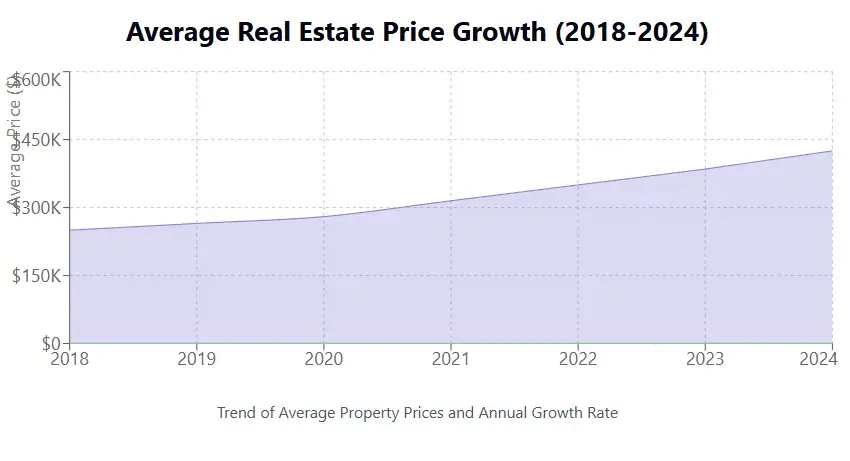
Current Real Estate Market Trends
The real estate market, especially the housing market, has its cycles that keep shifting between favoring homebuyers and sellers. When there is low supply, the prices can increase, especially when there is high demand. Interest rates also play an important role. They can change based on economic conditions and various market factors.
Consider the following situation from 2020 onwards. The Federal Reserve cut the interest rates, which made borrowing much cheaper. Since the inventory was limited at the time, home market value started rising and created a seller’s market.
In January 2020, the median new house sales price was $266,300
In January 2021, this price was $346,400
In January 2022, the median sales price for a new house was $423,300
So, economic factors can have a big impact on the fair market value of home.
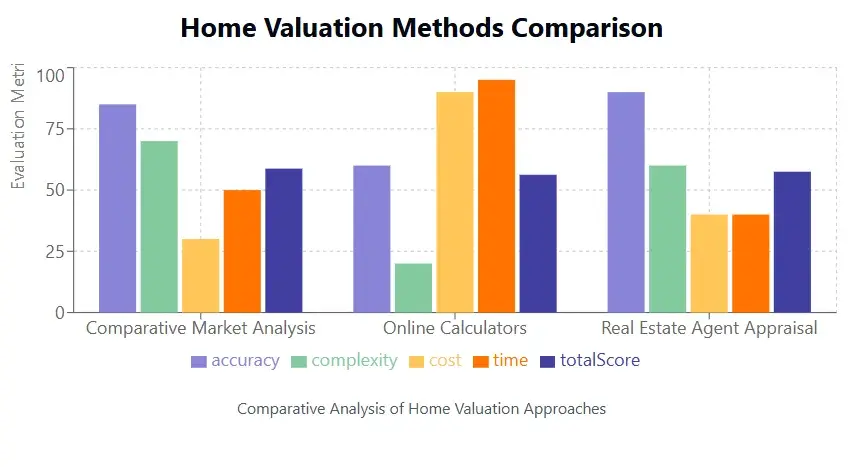
How to Determine the Fair Market Value of a Home?
There are different ways or approaches to the question of how to find market value of home.
How to Find Market Value of a Home Using Comparable Sales (Comps)?
Sellers, who deal in properties for sale by owner (FSBO), rely on comps to determine the current market value of home and the right listing price. It is important for homeowners to be familiar with sales comps so that they know that their agents are recommending the right listing price. It helps determine an accurate listing price that can:
Capture more homebuyers
Reduces time on the market
Streamlines the transaction
As a seller you can find comps on your own or get the help of an agent who can do all the research and pricing. Some of the resources that help with this approach include:
Public property records
Recently sold filter on Zillow
Online pricing tools

Using Online Home Market Value Estimators
There are many home market value estimator tools that can help you get a near estimate of a house’s fair market value. Examples of such tools include Zillow and Realtor.com. These sophisticated tools are quite useful and rely on public data as well as recent sales data to provide a reliable idea of a house’s market value.
Hiring a Professional Appraiser for an Accurate Valuation
Another way to know about the value of a property is to hire the services of a professional appraiser. Some of the steps such a professional will follow can include:
Inspection: The appraiser will review the property’s exterior and interior to ensure its structural integrity. They will look for any safety concerns, count the number of rooms, and look for any major upgrades.
Research: The process also involves checking the prices of comparable properties that were recently sold in the same market.
Valuation Technique: It is up to the appraiser to determine whether to calculate the fair market value of home based on the sales comparison approach or a cost-based approach.
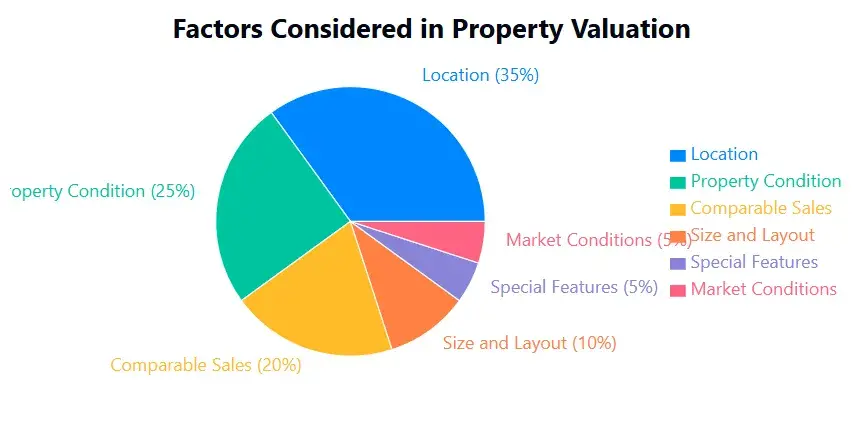
Real Estate Agent’s Role in Determining Market Value
Real estate agents have the training and experience to know how to determine fair market value of home. They can check the following attributes to come to an FMV:
Exterior Attributes: This includes the curb appeal, home style, exterior condition, public utility access, and lot size.
Interior Attributes: This includes factors such as HVAC systems, energy efficiency, number and size of rooms, and quality of construction and appliances.
Comparables: The price of similar homes in the area that have been sold recently.
Location: The neighborhood’s desirability, crime rate, and quality of schools.
Supply & Demand: The number of potential homebuyers and sellers in the market.
A fair home market value is often a valuable information to help homebuyers determine the concerns they might have for the property.
A real estate agent will also consider factors such as condition, unique features and amenities, current market condition, and historical sales data to come up with a reliable value.
Tools and Methods for Finding Home Market Value
There are several different tools and methods that can help you find current market value of home.
Home Market Value Estimators: Pros and Cons
A home market value estimator is one of the first tools that comes to mind when you think of finding FMV. While this tool can be helpful, you should also know about the drawbacks of using it.
Pros:
Convenience: You can get an estimate of a property with just a few clicks.
Excellent Starting Point: It is especially beneficial during the early stages of a buying or selling process. It can also help set realistic expectations even before you start engaging with the other parties.
Comparative Market Analysis: Certain estimator tools also help with comparative market analysis. You can use them to compare estimated values with similar properties in the region.
Cons:
Lack of High Accuracy: The accuracy of a home market value estimator can vary significantly. It cannot always account for the condition or unique features of a property.
Not a Fully Reliable Source: You cannot base your buying or selling decisions solely based on online home market value estimators.
Real estate valuation relies on many more factors such as market trends and community developments, which cannot always be accounted for by these tools. Online real estate value estimators cannot capture the unique characteristics of a property.
Using Property Tax Assessments as a Guide
The current market value of home can also be determined from its property tax assessments. It is affected by factors such as size, condition, and location. Additional factors that get considered during tax assessments include:
Square footage
Upgrades or improvements
Number of bathrooms and bedrooms
Recent sales data from similar houses in the region

How to Calculate the Fair Market Value of My Home?
There is no single formula for calculating the fair market value of home. It is often calculated based on the average of prices of multiple comparable properties recently sold. An appraiser can check such properties for their positives and negatives.
Appraisers can select the most relevant homes, located nearby, and having similar styles to compare with their values. They can then make adjustments to the market value of home based on factors, including:
Square footage
Type of lot
Type of garage
Presence of a pool or fireplace
Number of bathrooms
Conclusion
When it comes to determining the fair market value of home, you can follow several approaches. One way is to assess all the different factors such as location, property size, condition, and comparables to come to an estimate. Another approach is to hire the services of an appraiser or real estate agent. Property tax assessments can also provide valuable insights into the worth of a property. The fair market value acts as a good reference point when you begin your buying or selling process. You will still require the services of a professional to make an accurate estimate of the property’s value.
FAQs:
What is the formula for finding the fair market value?
There is no single formula for calculating fair home market value. It requires a careful comparison of the prices of similar properties sold in the area and the evaluation of various factors to come to an accurate estimate.
What is the difference between fair market value and appraised value?
Fair market value is based on the larger market forces and is generally determined by buyers and what they are willing to pay. On the other hand, an appraised value is calculated by a professional appraiser whenever the need for a value estimation arises.
Is fair market value the same as closing price?
No, FMV and closing price are not the same things. While FMV is an estimate of what a house is worth, the closing price is its actual selling price.
Is fair value higher than market value?
No, the fair market value of a house is not always higher than its market value. Its position compared to market value depends on the factors used for an evaluation.
News insight
 Feb 26, 2025
Feb 26, 2025How to Buy a Home with No Money Down: Options for Every Buyer
- Learn how to buy a home with no money down, including options for first-time buyers, foreclosures,...
 Feb 25, 2025
Feb 25, 2025How to Buy a House with Bad Credit: Tips and Strategies
Learn how to buy a house with bad credit. Discover strategies for first-time homebuyers, no money do...

